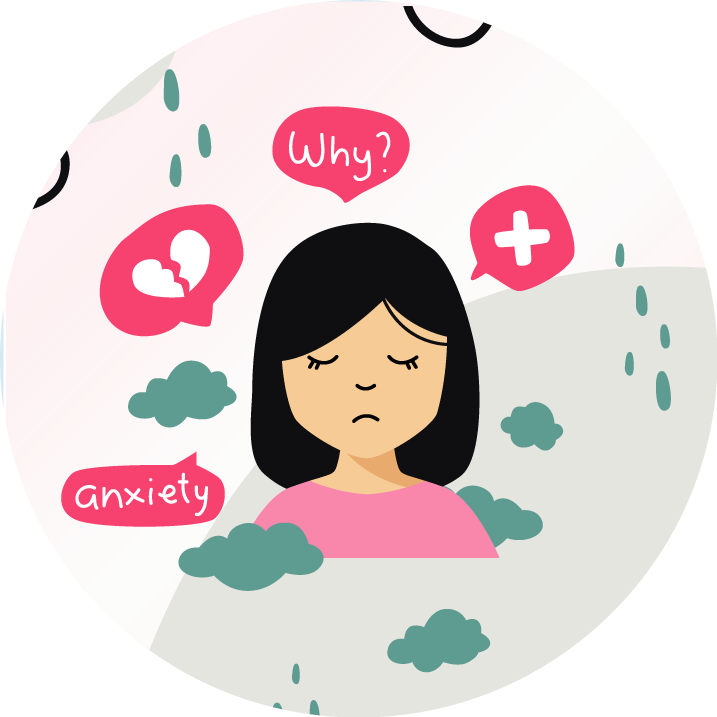Workplace Affairs and its toll on Career and Marriage

Workplace Affairs and its toll on Career and Marriage
September 16 2025 TalktoAngel 0 comments 75 Views
In the modern workplace, professional boundaries can often blur, especially when long hours, high stress, and personal ambition converge. Workplace affairs—romantic or sexual relationships between coworkers—can have profound consequences on individuals' careers, mental health, and marriages. While such relationships may begin with mutual attraction or emotional support, they often lead to unintended emotional turmoil, career damage, and the breakdown of committed relationships. This blog explores the psychological and relational impact of workplace affairs, and how couples, individuals, and organizations can navigate the aftermath.
The Slippery Slope of Workplace Romance
Workplace environments naturally foster close relationships. Daily interactions, shared goals, and high-pressure scenarios can foster emotional closeness. However, when these relationships turn romantic or sexual, complications quickly emerge. The secrecy and emotional intensity of affairs can heighten feelings of excitement and escape, particularly for individuals facing stress or dissatisfaction at home.
People involved in affairs often report temporary boosts in self-esteem and feelings of validation. For some, an affair may represent a way to reclaim lost identity or feel appreciated when emotional intimacy is lacking in their marriage. However, these perceived benefits are usually short-lived and replaced with anxiety, guilt, and confusion as the relationship progresses.
Emotional and Psychological Consequences
The psychological toll of an affair—especially when it’s uncovered—can be devastating. Individuals often experience intense stress, guilt, and shame. They may fear losing their job, damaging their professional reputation, or destroying their family. The person betrayed also suffers deeply, with studies showing symptoms of post-traumatic stress, loss of trust, and decreased self-worth.
For couples, the discovery of cheating and infidelity is one of the most severe relational traumas. It shatters the foundation of trust and causes significant couple conflict. Communication often breaks down, intimacy is lost, and resentment builds. Both partners may struggle with self-esteem, wondering if they are "good enough" or questioning their ability to forgive.
Therapists and counsellors often observe that recovery from infidelity is a complex and non-linear process. It requires both partners to engage in open, vulnerable communication, often for the first time in years. Healing involves addressing not just the affair, but the underlying issues that may have contributed to emotional disconnection.
Career Implications of Workplace Affairs
From a professional standpoint, workplace affairs can be equally damaging. Many organizations have strict policies against romantic relationships between employees, particularly when one partner has authority over the other. Violations of these policies can lead to job loss, demotion, or legal implications in cases of perceived coercion or favoritism.
Even when affairs are consensual and between peers, workplace gossip and damaged reputations can follow. Colleagues may lose trust in those involved, perceiving them as less professional or ethically compromised. This can lead to isolation, stalled career progression, and eventual burnout. The stress of maintaining a secret relationship—especially in a high-stakes environment—can lead to deteriorating performance and emotional exhaustion.
Why Do People Risk It?
Understanding the motivations behind workplace affairs is critical. They are rarely just about sex. Emotional connection, feeling valued, and a sense of escape from daily responsibilities are often stronger drivers. Work becomes a space where people can momentarily forget the strains of home life—childcare, bills, ageing parents, or relationship dissatisfaction.
In some cases, individuals who struggle with self-esteem may seek validation from someone who admires or compliments them. Others may be going through a midlife crisis or experiencing emotional disconnection in their marriage. In high-stress jobs—such as healthcare, law, or executive management—emotional vulnerability is particularly high, making individuals more susceptible to inappropriate connections.
The Role of Therapy and Counselling
While an affair can feel like the end of a marriage or career, it can also be a turning point. Many couples seek help from a therapist or counsellor to process the betrayal, rebuild trust, and improve communication. Therapy helps both partners understand their emotional needs, examine what was missing in the relationship, and determine whether reconciliation is possible.
For individuals, therapy can also be a place to explore underlying issues such as anxiety, stress, and low self-esteem. It allows people to unpack the motivations behind the affair and consider how they want to live going forward. Some couples emerge stronger, having used the crisis as a catalyst for growth. Others choose to part ways but do so with clarity and compassion.
Preventing Workplace Affairs
Prevention starts with strong personal and organizational boundaries. On a personal level, individuals in committed relationships should be mindful of emotional connections that feel “too close.” Transparency with partners about workplace friendships can help prevent secrecy. Emotional intimacy at home also acts as a protective factor; couples who nurture their connection are less likely to seek fulfilment elsewhere.
From an organizational standpoint, HR policies should clearly define acceptable behaviour, including rules around workplace relationships. Confidential support should be available for employees struggling with emotional or mental health challenges. Regular training on professional boundaries, workplace ethics, and communication can also reduce risk.
Conclusion
Workplace affairs carry a high emotional, relational, and professional cost. While they may begin with innocent connections or unmet emotional needs, they often end in heartbreak, stress, and couple conflict. Whether one is the betrayer or betrayed, healing is possible—but it requires honesty, professional support from TalktoAngel, and often, the courage to confront painful truths. For those impacted, therapy and online counselling provide a path to understanding, forgiveness, and growth, whether as individuals or as a couple.
Contributed by: Dr (Prof.) R K Suri, Clinical Psychologist & Life Coach, & Ms. Sheetal Chauhan, Counselling Psychologist
References
- Glass, S. P. (2003). Not "Just Friends": Rebuilding Trust and Recovering Your Sanity After Infidelity. Free Press.
- Gottman, J., & Silver, N. (2015). The Seven Principles for Making Marriage Work: A Practical Guide from the Country’s Foremost Relationship Expert. Harmony.
- Perel, E. (2017). The State of Affairs: Rethinking Infidelity. Harper.
- Snyder, D. K., Baucom, D. H., & Gordon, K. C. (2007). Getting Past the Affair: A Program to Help You Cope, Heal, and Move On--Together or Apart. The Guilford Press.
- https://www.talktoangel.com/blog/how-to-build-good-work-relationships
- https://www.talktoangel.com/blog/managing-relationship-stress-and-workplace-deadlines
- https://www.talktoangel.com/blog/being-mindful-about-office-romance-understanding-pros-and-cons
Leave a Comment:
Related Post
Categories
Related Quote

“Anxiety is a thin stream of fear trickling through the mind. If encouraged, it cuts a channel into which all other thoughts are drained.” - Arthur Somers Roche

"It is okay to have depression, it is okay to have anxiety and it is okay to have an adjustment disorder. We need to improve the conversation. We all have mental health in the same way we all have physical health." - Prince Harry

“So much developmental trauma can be avoided if we simply give children the right to exercise their natural right to play, to move, to explore the outdoors unsupervised… if we let children be children!” - Vince Gowmon

“Sorrow looks back, worry looks around, faith looks up.” - Ralph Waldo Emerson

"Mental health and physical health are one in the same for me - they go hand in hand. If you aren't physically healthy, you won't be mentally healthy either - and vice versa. The mind and body is connected and when one is off, the other suffers as well" - Kelly Gale
Best Therapists In India



























SHARE